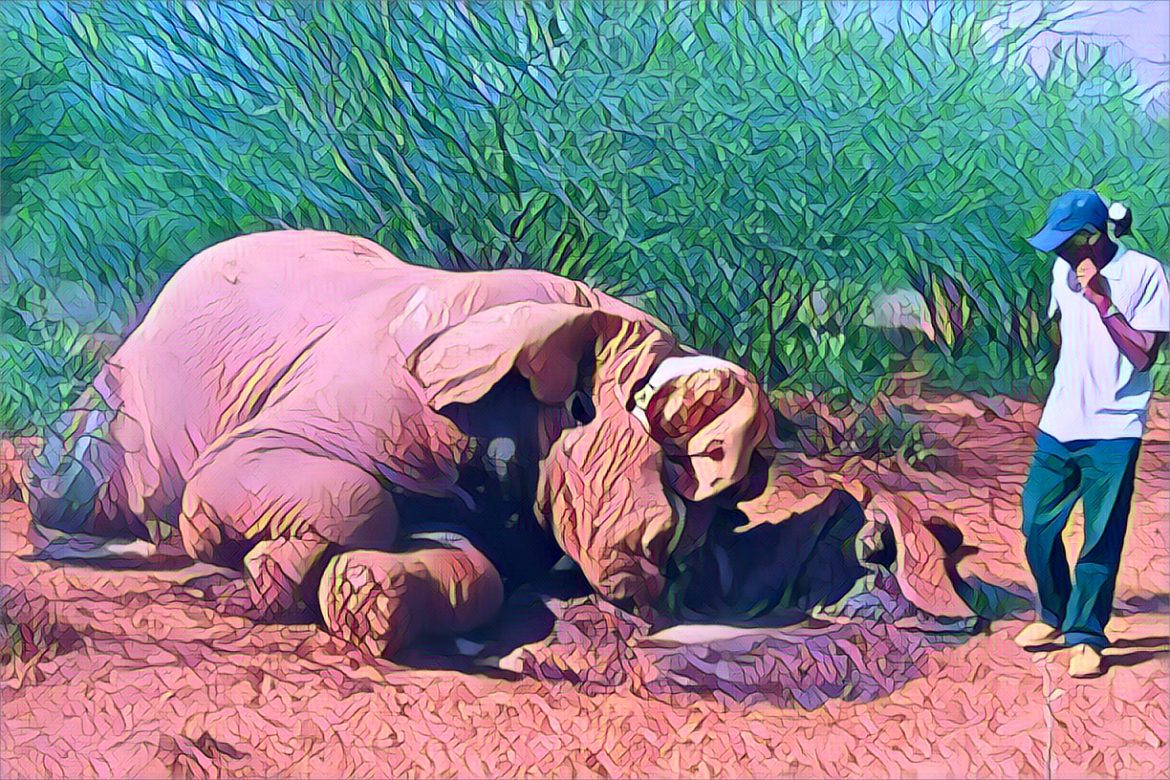Zimbabwe is facing a wildlife crisis as an extended dry season has reduced water holes to muddy puddles, putting elephants and other species at risk of dying. The International Fund for Animal Welfare (IFAW) said that summer rains were five weeks late due to the ongoing El Niño phenomenon, which affects weather patterns around the world.
According to IFAW, at least 100 elephants have already died due to lack of water in Hwange National Park, the country’s largest protected area and home to about 45,000 elephants. The park authorities said that the 104 solar-powered boreholes they have are not enough to cope with the extreme temperatures and the high demand for water from wildlife.
Based on a report by Newsday Zimbabwe, Elephants are among the most affected by the drought, as they are water-dependent mammals that need to drink at least 100 liters of water per day. They also have to walk long distances in search of food and water, which exposes them to poachers and human-wildlife conflicts.
The drought also impacts other animals, such as buffaloes, zebras, giraffes, lions, and antelopes, as well as the people who depend on them for tourism and livelihoods. IFAW said that the situation could worsen if the rains do not come soon, as it did in 2019 when over 200 elephants died in Zimbabwe due to severe drought.
The wildlife crisis in Zimbabwe is a symptom of the deep-seated and complex challenges affecting the region’s natural resources conservation, aggravated by climate change. IFAW said that it is working with local partners to provide emergency water relief, anti-poaching patrols, and community engagement to help the animals and the people who live alongside them.
IFAW also urged the global community to take action to address the root causes of the problem, such as reducing greenhouse gas emissions, promoting renewable energy sources, and supporting nature-based solutions to mitigate and adapt to climate change.
“Wild animals protect the carbon already stored in nature, prevent it from being released into the atmosphere, and help nature soak up and store even more carbon,” said Phillip Kuvawoga, IFAW’s landscape program director. “By protecting wildlife, we are also protecting ourselves and our future.”
There is still hope for Zimbabwe’s wildlife and the people who care for them. IFAW said that it has witnessed inspiring stories of resilience and compassion from the park rangers, the community members, and the wildlife lovers who are doing their best to save the animals.
One example is the story of Tafika, a baby elephant who was rescued by IFAW and its partner, the Tikki Hywood Foundation after he was found alone and dehydrated near a dry water hole. Tafika was taken to a rehabilitation center, where he received medical care and nourishment. He also made friends with other orphaned elephants, who helped him recover from his trauma.
Tafika is now thriving and growing stronger every day. He represents the hope that Zimbabwe’s wildlife can survive and flourish, with the help of dedicated and passionate people who are willing to make a difference.


